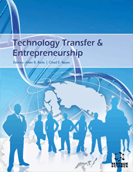Abstract
Priority Review Vouchers are FDA incentive programs for stimulating research into rare pediatric and neglected tropical diseases. Upon successful approval of a new drug application or new biologic license application for a target rare/neglected disease, the sponsor is awarded a voucher. This voucher may then be applied to shorten the review time of any subsequent drug/biologic application. The voucher can also be sold for use by another drug sponsor. These programs have been controversial and subject to criticism. In order to supplement current reviews of the programs, we have undertaken a quantitative analysis of the programs’ efficacy. Through interviews and examination of available data, we have observed an increase in drug approval, significant interest in the intended research areas as well as some modest investment since program establishment. Despite the increase in the use of these vouchers, there is no evidence of a decrease in the FDA’s ability to respond to drug applications in a timely manner. Taken together, we conclude that the programs appear to be on track to stimulate research and development for the targeted rare/neglected indications. Because of the long cycle of drug development, more time is needed before a conclusion can be made on whether the programs have met their stated goals. Finally, we offer suggestions for improvement to the program.
Keywords: Priority Review Voucher, PRV, Rare Pediatric Disease, Neglected Tropical Disease, FDA Incentive.
 17
17 1
1

